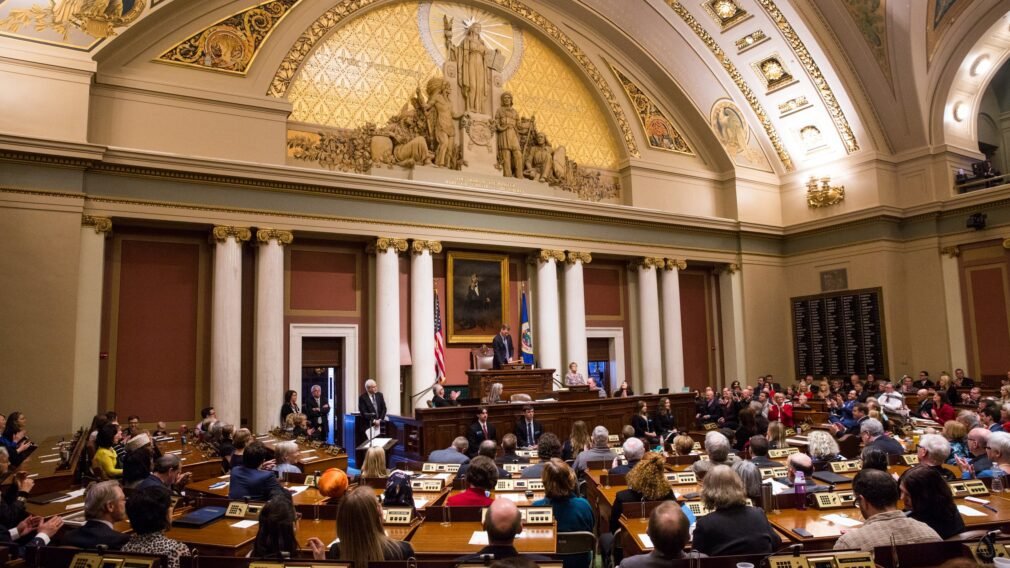Minnesota Lawmakers Introduce Third Sports Betting Bill with SF 978
Minnesota lawmakers have introduced yet another bill aimed at legalizing sports betting in the state. Senate File 978 (SF 978) presents a fresh approach to regulation, taxation, and licensing. Unlike earlier bills, SF 978 includes a competitive platform selection process, stricter advertising rules, and a progressive tax structure.

How SF 978 Stands Apart from Previous Bills
One of the biggest changes is the tax structure. SF 978 proposes a minimum 40% tax on net revenue, determined by the highest bid from the top two sportsbook platform providers.
By contrast, earlier bills suggested lower, fixed tax rates—Senator Jeremy Miller’s bill proposed a 20% tax on gross gaming revenue, while SB 757 suggested a 22% tax on revenue outside tribal lands.
Unlike past proposals, SF 978 ensures all licensed operators pay the same tax rate to maintain fairness.
Another shift is the competitive selection process for platform providers. The Minnesota Commissioner of Public Safety will issue a request for proposals within six months of the bill’s passage, and operators will have 30 days to submit applications.
The state will grant two initial licenses to the highest-scoring bidders, with the option to add more licenses if necessary. Earlier bills focused primarily on granting exclusive rights to tribal operators without implementing a competitive selection system.
Licensing and Market Structure
SF 978 grants exclusive rights to operate mobile sportsbooks to Minnesota’s federally recognized tribes, but each tribe can only hold one license. Operators must partner with a single sportsbook platform, limiting the number of agreements. The bill also caps the total number of sportsbook and platform licenses at eleven, ensuring market competition while maintaining tribal involvement.
The bill also clarifies where bets are placed. Unlike SB 757, which defined a bet’s location by where it was received, SF 978 states that a bet is officially placed when the bettor is physically in Minnesota. However, certain geofenced areas will restrict betting access.
Consumer Protections and Advertising Rules
SF 978 includes some of the strictest consumer protections ever proposed in a Minnesota sports betting bill. Operators must offer self-exclusion programs, deposit limits, betting caps, and cooling-off periods. Individuals can voluntarily exclude themselves from betting for one year to life, and operators must remove problem gamblers from marketing lists.
Advertising restrictions also go further than past bills. All gambling ads targeting individuals under 21 are banned, marketing is prohibited on college campuses, and every ad must include responsible gaming messaging. Previous proposals focused more on operator licensing rather than advertising regulations or consumer protections.
Recommended
